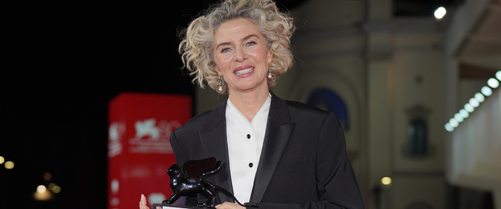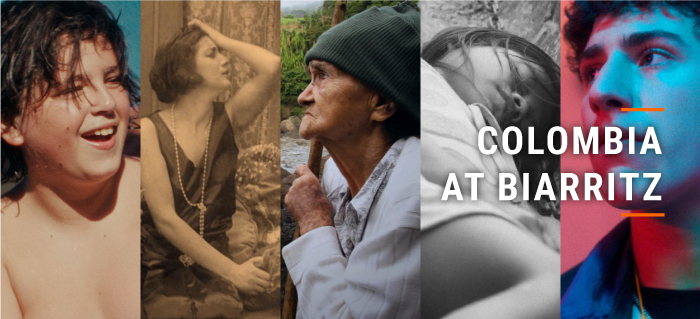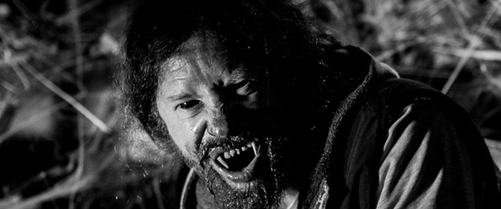
Colombia at Biarritz
Pantalla Colombia No.: 124october 01 - 31 / 2023
Todo incluido (All Inclusive) by Duván Duque Vargas, Mudos testigos (Silent Witnesses) by Luis Ospina and Jerónimo Atehortúa, Nosotras (We, the Women) by Emilce Quevedo Díaz, Adieu Sauvage (Farewell Savage) by Sergio Guataquira Sarmiento, El otro hijo (The Other Son) by Juan Sebastián Quebrada, Entrevista laboral (Job Interview) by Carlos Osuna, and Vicenta B. by Carlos Lechuga were the Colombian entries in this event, which serves as a meeting and exchange platform between Europe and Latin America. Nosotras and Adieu Sauvage won awards in the Documentary Competition.

The Biarritz Amérique Latine Festival is a prominent event for Latin American cinema. It features three competitive sections for feature films, short films, and documentaries, presenting various annual awards. The most prestigious one is the "Abrazo" (Embrace), awarded to the best film. The festival also includes non-competitive sections, tributes on different themes, and opportunities to explore Latin American culture through literary and academic meetings in collaboration with the Institute of Higher Studies on Latin America (IHEAL), as well as concerts and photography exhibitions.
El otro hijo, directed by Juan Sebastián Quebrada, represented Colombia in the Fictions Competition. The film is a production of Franco Lolli and Capucine Mahé from Evidencia Films (Colombia), co-produced by Vaya Films, RTVCPlay, Grégoire Debailly of Geko Films (France), and Nicolás Grosso of Le Tiro Tresmilmundos Cine (Argentina). It received two grants from the Fondo para el Desarrollo Cinematográfico - FDC (Production and Writing) and had support from Caracol Televisión and Dago García Producciones. The film features cinematography by Michaël Capron, sound by Guido Deniro, and editing by Julie Duclaux and Pascale Hannoyer. The cast includes Miguel Gonzalez, Ilona Almansa, and Jenny Navarrete. El otro hijo made its way to Biarritz after its world premiere during the 71st edition of the San Sebastian Festival.
The Short Film Competition featured Todo incluido, a film written and directed by Duván Duque Vargas. The film had cinematography by Konstantinos Koukoulios, editing by Juan Sebastián Quebrada, and production by Franco Lolli and Capucine Mahé of Evidencia Films, along with Toufik Ayadi and Christophe Barral of Srab Filmé. It was co-produced by Vaya Films and Parche Films. The story follows eleven-year-old Fer and his family traveling to a tropical hotel a few hours from Bogotá. Although his father is on a business trip, he promised Fer they would spend some quality time together as a family, something they haven't experienced in a long time.
The Documentary Competition included Nosotras (We, the Women), directed by Emilce Quevedo Díaz, who also co-wrote the script with Tatiana Andrade and María José Salcedo. The film involved Isabel Torres, Marcela Vanegas, Deisy Quevedo Díaz, and Carolina Fernández in the photography; Ricardo Acosta, María Alejandra Briganti, and Carlos Cordero in the editing; and Emilce Quevedo Díaz and Susana Urrea in the production. In this documentary, the director explores the value of sisterhood and resilience through three generations of women in her family. She also examines the impact of traditional gender roles, the various forms of violence associated with them, and the oppressive influence of religion. The jury awarded it a Special Mention in the competition.
In the same category, the Abrazo Award for Best Documentary was granted to Adieu Sauvage by Sergio Guataquira Sarmiento, a collaboration between Belgium, Colombia, and France. The cinematography was handled by David Garcia, with editing contributions from Noé Bries Silva and Martin Delzescaux, among others. In its film description, the festival underscores the misconception that indigenous people from the Amazon, according to "whites" in Colombia, do not experience emotions, considering the absence of words in their language to describe feelings. The documentary follows director Sergio Guataquira Sarmiento, a descendant of a Colombian indigenous community nearing extinction, as he engages with the Cácuas to discuss emotions, love, and loneliness. In doing so, he reconnects with his own indigenous heritage. The Cácuas, with humor and tenderness, try to teach him what it means to be indigenous. This initiation quest offers an emotional x-ray of an entire community.
Mudos testigos (Silent Witnesses), directed by Luis Ospina and Jerónimo Atehortúa, is a feature film produced by Invasión Cine and Pomme Hurlante Films, which was part of the Versión Original program. The film's cinematography was handled by Nicolás Pinzón, with sound work by Mercedes Gaviria, Diana Martínez, and José Gaviria. It was edited by Juan Mora and Federico Atehortúa. This film is a cinematic collage created by stitching together sequences from silent Colombian films to weave an imaginary tale: the impossible love story of Efrain and Alicia, set against the backdrop of political instability in Colombia. The project received support from various entities, including the Hubert Bals Fund (Netherlands), the Centre National du Cinéma et de l'image Animée - CNC (France), the Centre National des Arts Plastiques - CNAP (France), the Philharmonic Orchestra of Bogotá, the Cinematheque of Bogotá, the Colombian Film Heritage Foundation, Dago García Producciones, and Caracol Televisión.
The same program included another Colombian production, Entrevista laboral written, directed, and edited by Carlos Osuna, and produced by Andrés Tudela. Guillermo Santos served as the director of photography, while Alejandro Quintero was responsible for the sound. The cast featured Yeyo Cardoso, Claudia Yurley Quintero, K-NO, Jocsan García, and Zombra. In this film, Carlos has lost his dog. We observe him from a distance, akin to someone observing other people's lives from a house's terrace, watching without listening, constructing the imaginative stories of those who pass by, whether they wave, gesture, laugh, or drag their steps.
Finally, the Festival en Región program presented Vicenta B. a co-production between Cuba, France, the United States, Colombia, and Norway, directed by Carlos Lechuga. Carlos Lechuga and Fabián Suárez wrote the script, Denise Guerra handled the cinematography, and Velia Díaz de Villalvilla was the editor. The cast included Linnett Hernández Valdés, Mireya Chapman, Aimeé Despaigne, Ana Flavia Ramos, Pedro Martínez, Eduardo Martínez, and more. The film portrays Vicenta Bravo, a 45-year-old Cuban woman with a special gift for foreseeing people's futures through card readings. Every day, her home welcomes people facing various challenges and seeking solutions. Vicenta and her son live together in harmony until he, too, decides to leave the country.
More news


